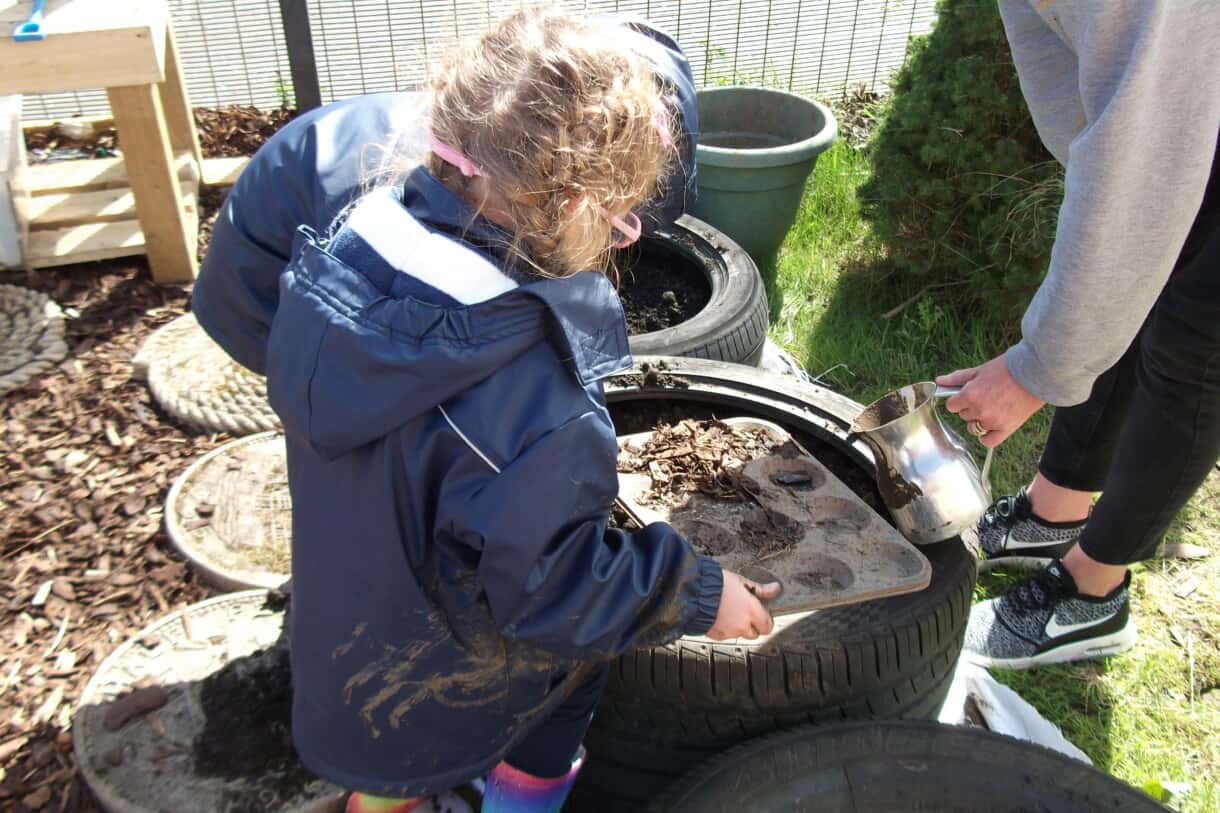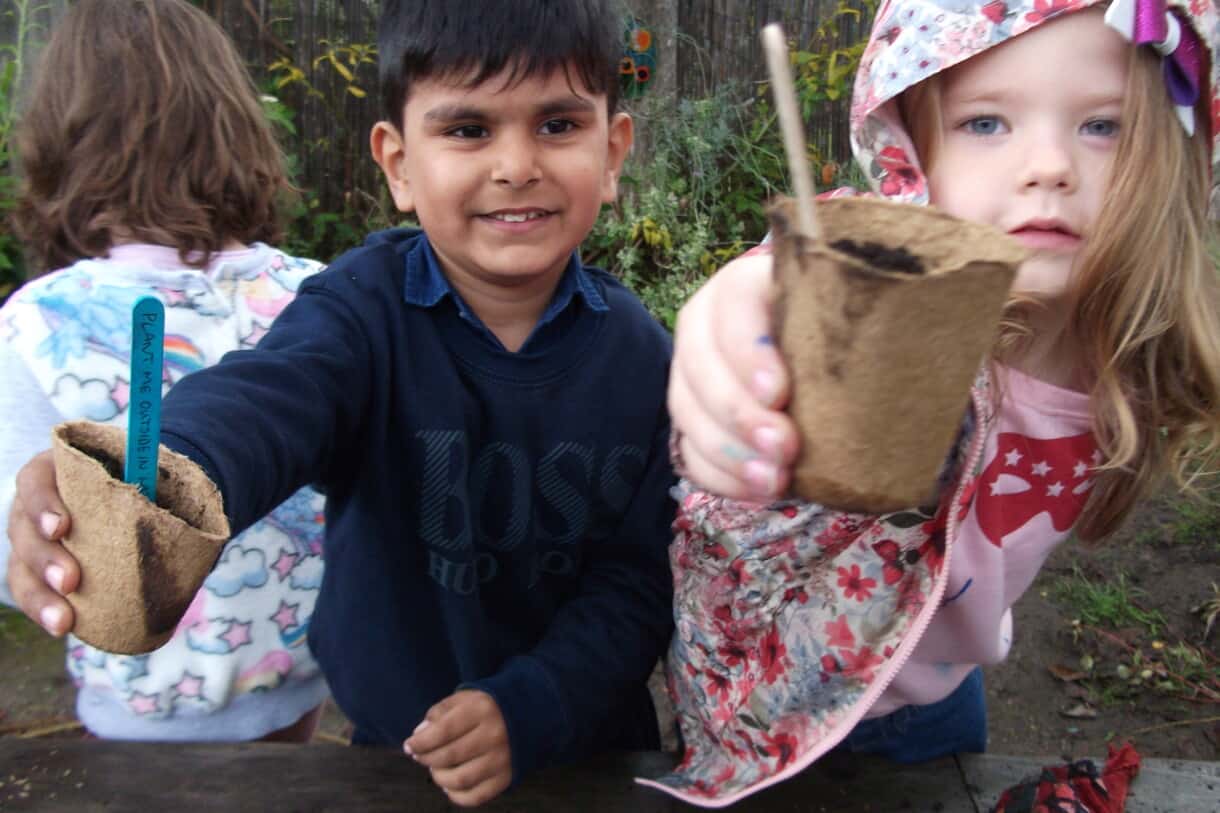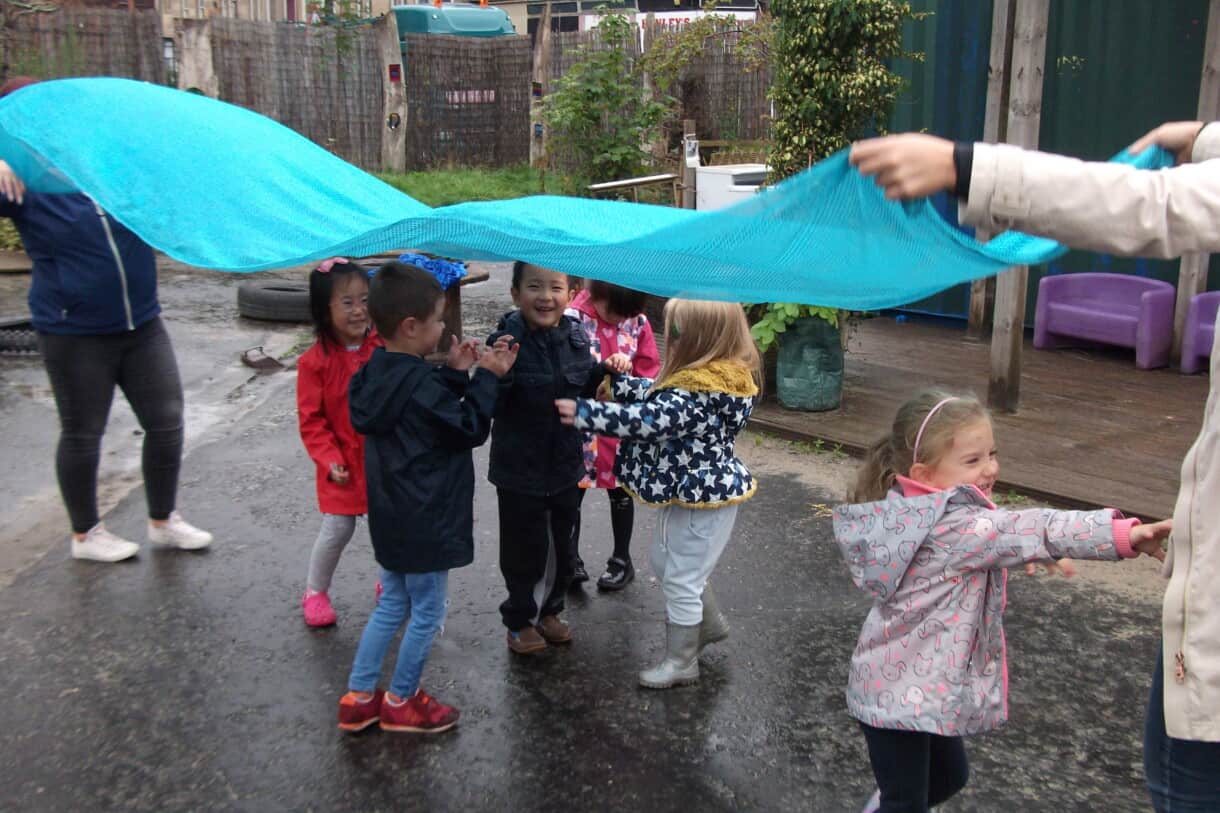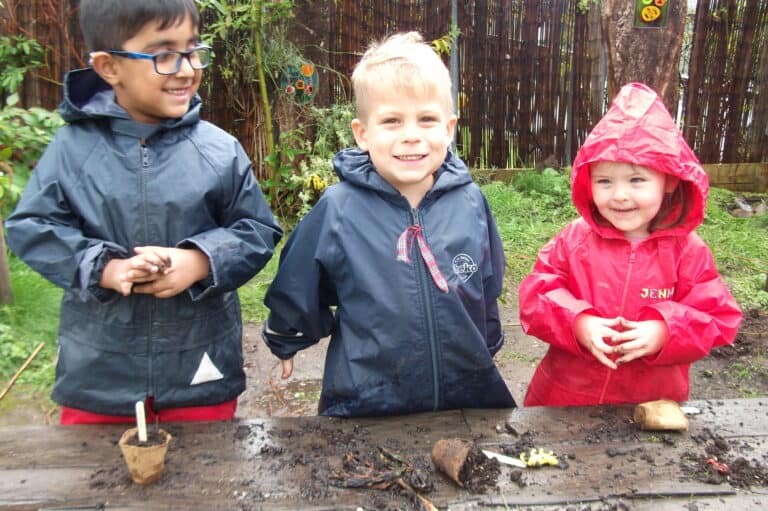by Sarah Rankin
Eco Drama’s first Out to Play project designed specifically for nurseries kicked off two weeks ago. It has been a lot of fun getting to know the inquisitive children and friendly staff at both Westercraigs and Barlanark nurseries in Glasgow’s East End.
I began my Eco Drama journey with fantastic training delivered by the original Out to Play Drama Artist Ben Mali, along with continuing Drama Artist Sophie McCabe. Their experience from previous Out to Play projects in primary schools has greatly inspired my approach for the early years nursery context. I hope this term in nurseries will be as magical, engaging and most importantly, so deeply connected to nature as has been accomplished at primary level.
During my training I participated in several nature connection activities, which emphasised the importance of having nature at the heart of workshops. My favourite nature connection exercise, as stereotypically ‘drama’ as it sounds, involved me being led around Glasgow Green blindfolded and introduced to a tree. I felt its branches, leaves, bark and even some smooth tree sap. I was ridiculously proud when I was instantly able to identify my tree from far away once the blindfold came off. It is this sense of connection and love for nature I hope to achieve in the workshops. There is a big difference between simply doing an activity outdoors and genuinely connecting with the outdoors. For example you can easily plant a seed in soil but have you taken time to truly explore it? Feel it? Mix it? Think about how it’s made? It is sensory exercises like this that engage our sense of touch, smell, taste, sight and hearing that allow us to truly connect with nature.
Of course, nurseries are already very good at this. They encourage outdoor time and talented staff have countless games and songs up their sleeves, and they have the most absorbent pupils. But no matter the context there’s always room for a little more magic.
To try and encompass magic and nature connection I focused on the following four elements:
- Theme – Each week the theme inspires the story, songs, drama games, and play. The first week was inspired by soil and the second week was all about water. As mentioned, instead of just using soil as a topic with learning outcomes the workshop allows us to deeply explore our ideas about soil. We felt it, sang songs about it, acted out growing in it, played in it and got covered in it.
- Teacher in role – To engage the children’s imagination and curiosity I introduce myself as Sarah, a friend of Mother Nature. I wear a tartan cape and ask them to come exploring with me. This has worked well and when I walk into the nurseries I often hear little gasps of ‘that’s Mother Nature’s friend!’
- Mother Nature’s Presents – To add to the sense of magic Mother Nature leaves us a present each week which is a clue to the theme. For example, in the first week we found a wooden box with soil and seeds inside. Their instant reaction was ‘it’s dirty mud!’ and some children said they weren’t allowed to touch it in case they got dirty. After talking about how amazing soil is and listening to a story about what it grows and who lives in it they started to see soil as magic and not as ‘dirty mud’. The children then planted seeds and went home with their own biodegradable pot to look after. Even the children that were hesitant as first were happily and healthily covered in soil by the end. Each week we thank Mother Nature for her gifts and promise to look after them. In turn we learn to always look after nature and be thankful for it.
- Drama and Storytelling – The children are absolutely engrossed by the stories and have been enjoying acting them out. Through engaging with the story they connect with the themes and empathise with the characters. There is plenty of participation which builds confidence and self-esteem as well as cognitive and fine motor skills. For example during water week we heard the story ‘Tiddalick the Frog’. Tiddalick drinks all the water in the world but the animals and plants are sad because they need water too. When we listen to this exciting story we learn to appreciate and look after water. This is of course good for the environment but also for children’s learning, development and well-being.



So far these techniques have worked very well in creating an exciting workshop and there has been great feedback from children and staff. The children like to keep me updated on how their seed is growing and if they’ve seen any bugs in the soil. The nursery staff have reported that the children are enjoying it and have even noted an increase in confidence and speech in some individuals.
On Wednesday Storm Ali descended and we had to stay inside. Though with Out to Play we pride ourselves in going out in all weathers, in the event of a weather warning we have to stay inside for everyone’s safety. With a few tweaks the water workshop translated well from outside to inside. As the nursery has indoor sandpits and water trays we were still able to explore the sensory elements of the workshop. Despite our day inside the first two weeks couldn’t have gone better and I can’t wait for the rest!

Sarah Rankin, Early Years Drama Artist


![glasgow city council logo [black] Glasgow City Council logo](https://ecodrama.co.uk/wp-content/uploads/2023/12/glasgow-city-council-logo-black.png)
